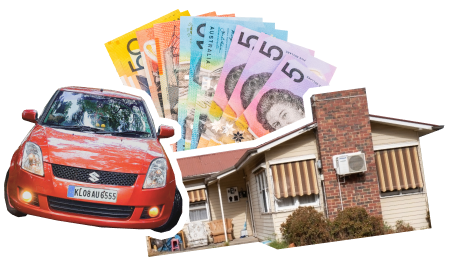Every four years Victorians vote to decide who will represent their town, suburb or local area as part of their local council.
Local government is one of the three levels of government in Australia (the other two are the federal and state/territory governments). It's the level of government that looks after the issues that are specific to the area you live in, things like local parks, sport grounds, libraries and rubbish collection.
What local government does
Local government isn't specifically mentioned in the Australian Constitution, but they are key decision-makers with respect to many things that affect you close to home.
Local governments are often responsible for:
- aged care
- childcare
- youth services
- local sporting facilities
- local libraries
- local road and street maintenance
- rubbish collection and recycling.
Local governments also often organise community festivals, events and local art exhibitions.
When is the next local council election?
Every local council across Victoria, from the City of Casey to the Shire of Yarriambiack is elected at the same time every four years.
Visit the Victorian Electoral Commission website to find out when the next local council election is happening.
Do I have to vote?
Voting in all relevant local, state and federal elections is compulsory in Australia. So is enrolling to vote. If you're 18 or over, an Australian citizen and you're enrolled to vote, but you don't vote - for whatever reason - you could be fined.
If you're 18 or over and you're NOT enrolled to vote, you can’t legally vote as your name won’t appear on the voting role.
Since it's illegal not to vote if you're 18 or over, not being enrolled could mean that you get fined for not voting.
To find out where you're enrolled, check out our check or change your enrolment page or head straight to the VEC's check your enrolment page.
For more about failure to vote, check out the VEC's what if I didn't vote? page.
For more about enrolling to vote, check out our enrolling to vote and check or change your enrolment pages.
Who can I vote for?
In local council elections, you’re voting for the people who’ll represent you on your council.
To find out who your local councillors are at the moment, visit Know Your Council website.
Remember: It's up to you to decide who you vote for. You don't have to vote for people just because your friends or family tell you to, and you don't have to vote the way that how-to-vote cards say either. The only person who can choose who you vote for is YOU.
How do I vote in a local election?
Local council elections can be run using postal voting or attendance voting.
Councils choose which one they want to use before each election. Ballot papers look the same, and voters mark them in the same way, for both systems of vote counting.
If it's a postal vote, a ballot paper will be sent to you at the address that's listed for you on the electoral roll. If it's an attendance vote, voting booths are usually set up at your local town hall, primary school or community centre.
Visit the Victorian Electoral Commission (VEC) website for more on attendance voting and postal voting.
You will be given a ballot paper. All you need to do is place a 1 in the box next to your preferred candidate, and then number all of the remaining boxes in the order of your preference.
Some political parties hand out how-to-vote cards that show how they would like you to number the boxes on your ballot paper. You don't have to complete your ballot paper the way that any how-to-vote card tells you to if you don't want to. It is completely up to you how you complete your ballot paper.
When you complete your ballot paper, make sure that you have numbered all of the boxes on the ballot paper. If you don't number ALL of the boxes, your vote will be considered 'invalid' and won't be counted.
Further information
For more information about voting in local council elections in Victoria, visit the VEC website.

